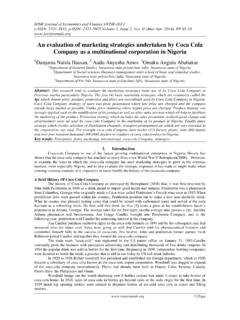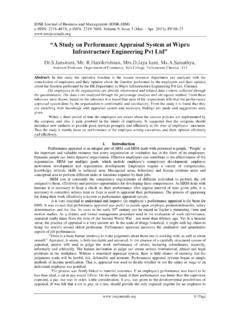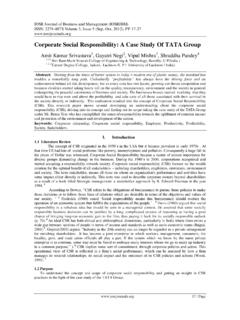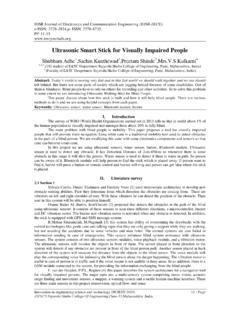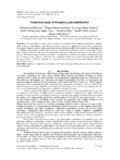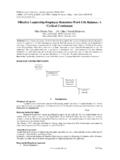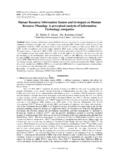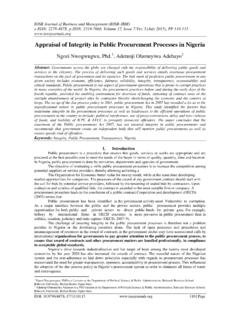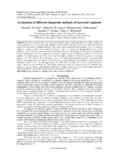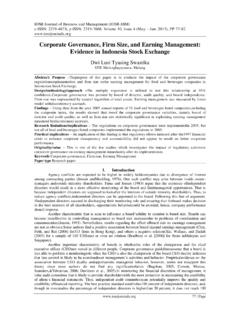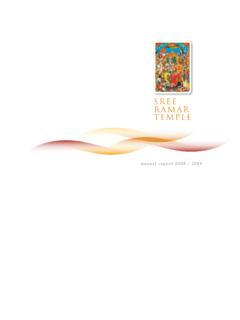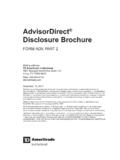Transcription of An Examination of the Laws on Tax Reliefs and Exemption In ...
1 IOSR Journal of Business and Management (IOSR-JBM) e-ISSN: 2278-487X, p-ISSN: 2319-7668. Volume 17, Issue IV (May. 2015), PP 04-10 DOI: 4 | Page An Examination of the Laws on Tax Reliefs and Exemption In Nigeria: The Status Of Non-Governmental Organizations BY 1 Dr. M. K Adebayo 2 Barr Bunu M. Abubakar 3 Dr. Zainab Gimba 1,2 Department Of Private Law, Faculty Of Law, University Of Maiduguri, Borno State, Nigeria 3 Department Of Public Administration, Faculty Of Management Sciences, University Of Maiduguri, Borno State, Nigeria Abstract: Tax, simply is a charge imposed by governmental authority upon property, individual, or transaction, to raise money for public.
2 Generally, tax is assessed in accordance with some reasonable rules of apportionment on persons or property within the tax jurisdiction. However, the benefits of contribution are not necessarily to be enjoyed contemporaneously or proportionately to contributions by individuals. Both the Personal Income Tax Law and the Companies Income Tax Act, exempt from taxes certain categories of individuals based on selected criteria and profits of companies engaged in certain public benefit activities such as ecclesiastical, educational or charitable, so long as the profits are not derived from trade or business undertaking.
3 Profits of companies established to promote sporting activities are also exempted. The purport of this paper is to draw attention to the reawakening concept of tax Reliefs and exemptions under Nigeria s current dispensation and tax policies. The aim is to clear some doubts and misgivings about the status scope, nature, and objectives of tax Exemption concept. I. Introduction Nigeria s current fiscal framework is characterized by a relatively high general taxation coupled with generous incentives for sector activities. Along with the sheer complexity of the tax system, especially at the state and local levels, where business report a multiplicity of taxes and a degree of arbitrariness in how taxes are announced, levied and collected which gives rise to inefficiencies and confusion.
4 It leads to unhelpful discrimination between tax payers i. e between individuals and corporate In September, 2007, the President (Late Musa Ya ardua) established a Presidential Committee on the review of incentives, waivers and concessions. Its role is to analyze the existing tax and incentives policy among others, and recommend any improvement required to better achieve the Government Fiscal Objectives. The incorporation of the feedback received on the draft submitted by the Committee was published in the final version of the report. Based on the fiscal study of the impact of the proposal contained in the report, a new fiscal framework was prepared and introduced into the Personal relief and allowances are amounts allowed as free from taxes each year.
5 They are intended to give some relief to taxpayers according to the individual s responsibility and circumstances. These amounts are deductible from taxpayers gross income before arriving at the taxable income. The amounts are fixed by the government and are subject to The taxpayer is required to make a claim for relief before the relevant tax authority will grant it, this is because individual taxpayers have unique peculiarities depending on individuals responsibilities and circumstances and may not be equitable to work on assumption. Tax Laws And Exemptions Nigeria is a Federal Republic; therefore, the country s legal system is based on the English Legal tradition.
6 The law governing voluntary not for profit organizations in Nigeria, is a byproduct of the English common laws. Statutory law governs the creation of a not for profit companies. Others not profit organization, such as unincorporated associations, charitable, charitable trust, friendly societies, political parties, and trade unions also exist in Nigeria. Nigerian companies are taxed under the Companies Income tax Act (CITA). The Companies Income Tax Act, exempt from tax the profits of companies engaged in certain public benefits activities, so long as the profits are not derived from trade or business undertaking.
7 Profits of companies established to promote sporting 1 Federal Ministry of Finance (February, 2008). Report of the Presidential Committee on the Review of Incentives, Waivers and Concessions, Abuja, Nigeria. 2 Ibid. 3 Ola, Income Tax Law in Nigeria (Ibadan, Heinemann Educational Books Ltd, 1999) p. 145 An Examination Of The Laws On Tax Reliefs And Exemption In Nigeria: The DOI: 5 | Page activities are also exempted. Nigerian companies may also make tax deductible donations to certain public benefit organizations that are listed in the Fifth Schedule to the Companies Income Tax Act.
8 The relevant laws on tax Exemption are the Constitution of the Federal Republic of Nigeria, 1990;4 Companies and Allied Matters Act;5 Companies Income Tax Act;6 Criminal Code;7 and Federal Inland Revenue Service (Establishment) Act, An association of persons, which appoints one or more trustees and pursues registration under Part C of the Companies and Allied Matters Act, is called incorporated trustees. Upon registration, the trustees become a body corporate with a perpetual succession as well as the power to sue and be sued. There are essentially two forms of association with incorporated trustees.
9 The first form occurs where the trustees are appointed by any community of persons bound together by customs, religion, kinship or nationality. The second form is identified by the fact that the trustees are appointed by anybody or association of persons established for any religious, educational, literary, scientific, social, development, cultural, sporting, or charitable Also, a Company Limited by Guarantee is formed for the promotion of commerce, art, science, religion, sports, culture, education, research, charity, or other similar objects. The income and property of the company is applied solely towards the promotion of its objects.
10 No portion of the company s income or property may be paid or transferred directly or indirectly to the members of the company except as permitted by the Companies Allied Matters The activities listed in the Companies Income Tax Act for the purposes of tax Exemption and deductibility of donations indicate which types of activities are considered to be of public benefit. These may include; ecclesiastical, charitable, educational, or The Taxies and Levies (Approved List for Collection) Act 1998 No. 21 is the most comprehensive and authoritative legislation on taxes that can be collected by each level of government.
